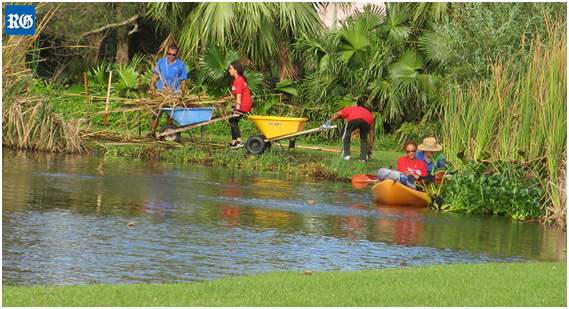Recent News
Series celebrating marine life completedTuesday, March 22, 2016
The Ocean Vet series that has been three-and-a-half-years in the making and will highlight Bermuda’s natural treasures to millions globally is finally complete.
Career fuelled by passion for wildlife
Monday, March 07, 2016
Nesta Wellman’s passion for conservation and wildlife runs deep in his veins.
Lemur visits dentist for tooth troubles
Tuesday, February 23, 2016
Saturday was not a typical day at the office for dentist Len Wedlich.
Daisy blossoming, thanks to surgery
Saturday, February 20, 2016
A loggerhead turtle that underwent life-saving surgery to remove a rusting hook that had became embedded in her throat has started to eat for herself.
BZS Lecture: “Ecology Of The Sargasso Sea”
Saturday, February 20, 2016
Dr. Robbie Smith, the Curator of the Bermuda Natural History Museum at BAMZ, will be presenting a lecture on the “Ecology of the Sargasso Sea” on Wednesday, February 24th at 7.00pm.
About
GovernanceAbout Us
Newsletter
Latest News
Gift & Bookstore
Contact
General Inquiries
info@bzs.bm
Latest News
All the latest updates and news from the Bermuda Aquarium, Museum, and Zoo, one of Bermuda's leading visitor attractions!
Jonathan Bell
Published Jan 16, 2018 at 8:00 am (Updated Jan 16, 2018 at 6:41 am)

HSBC volunteers help a Bermuda Zoological society team clean up
Cloverdale Pond in Smith's (Photograph supplied)
Two ponds have been cleaned up courtesy of an island conservation programme.
Cloverdale Pond in Smith’s and Southampton’s Evan’s Pond, a refuge for endangered species, were improved through the Bermuda Zoological Society’s wetlands remediation programme.
The scheme, which became the HSBC global water programme for Bermuda in 2014, was designed to remove toxic petroleum compounds from ponds.
The build-up of the poisonous hydrocarbons is a threat to the island’s two endemic killifish species, as well as native diamondback terrapins, which are a protected species.
The compounds, which come from oil, water runoff and vehicle exhausts, can be broken down by bacteria when the pond sediments are aerated.
The two-year grant from HSBC allowed the proposal to be tested in the field.
Volunteers also took part, with help from the Department of Environment and Natural Resources.
The BZS said Cloverdale was chosen first because of its small size, its “known severe effects on wildlife” and the absence of protected species in the water.
Evan’s Pond was selected as the second test site because of its small population of killifish.
The ponds were divided into sections and aerated for six to eight hours a day with solar powered compressors.
Hydrocarbon levels saw a major reduction over the course of a year.
The next site for remediation is the South Pond at the Mid Ocean golf course, where the hatching of diamondback terrapins has been hampered by pollution.


